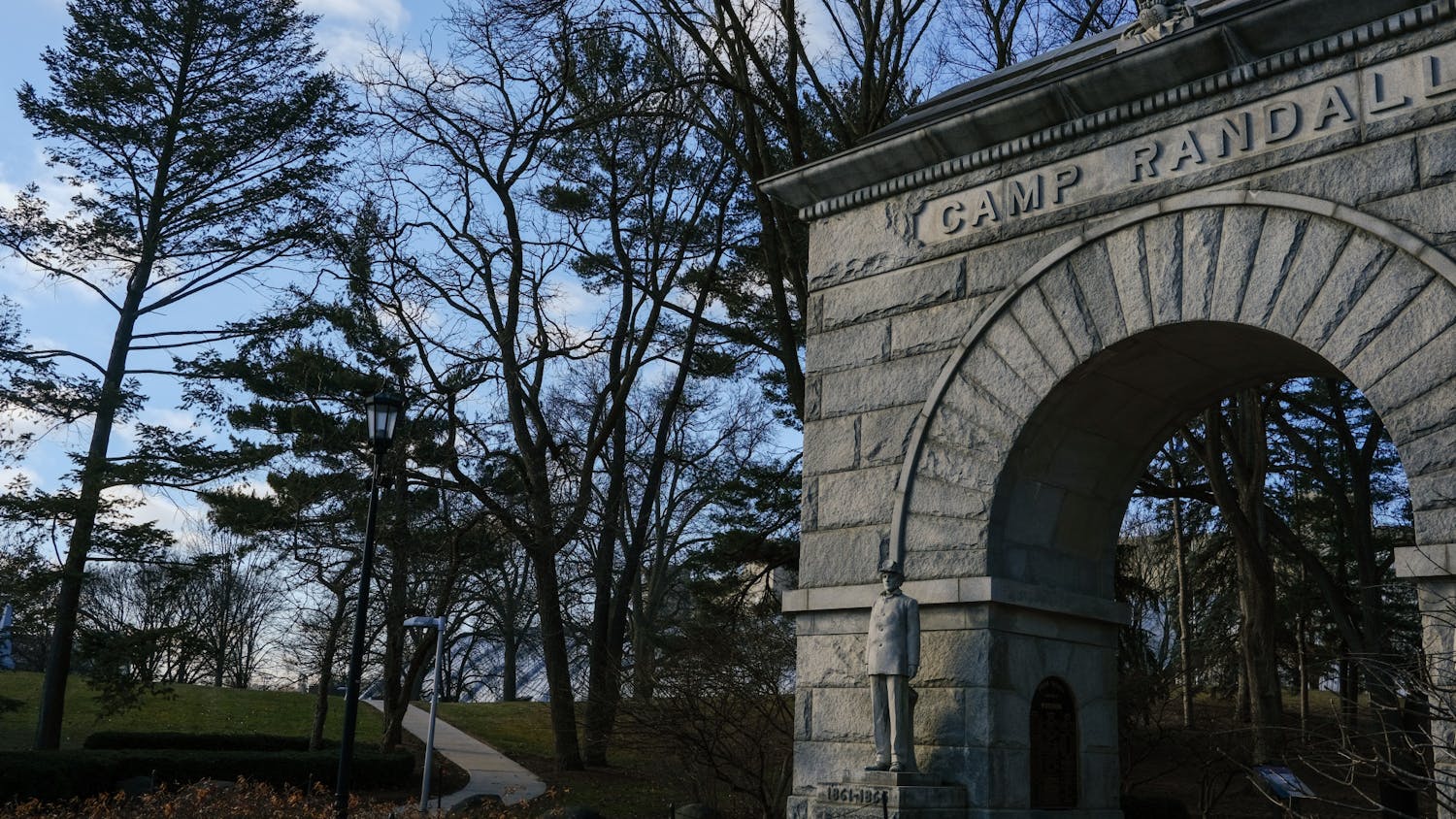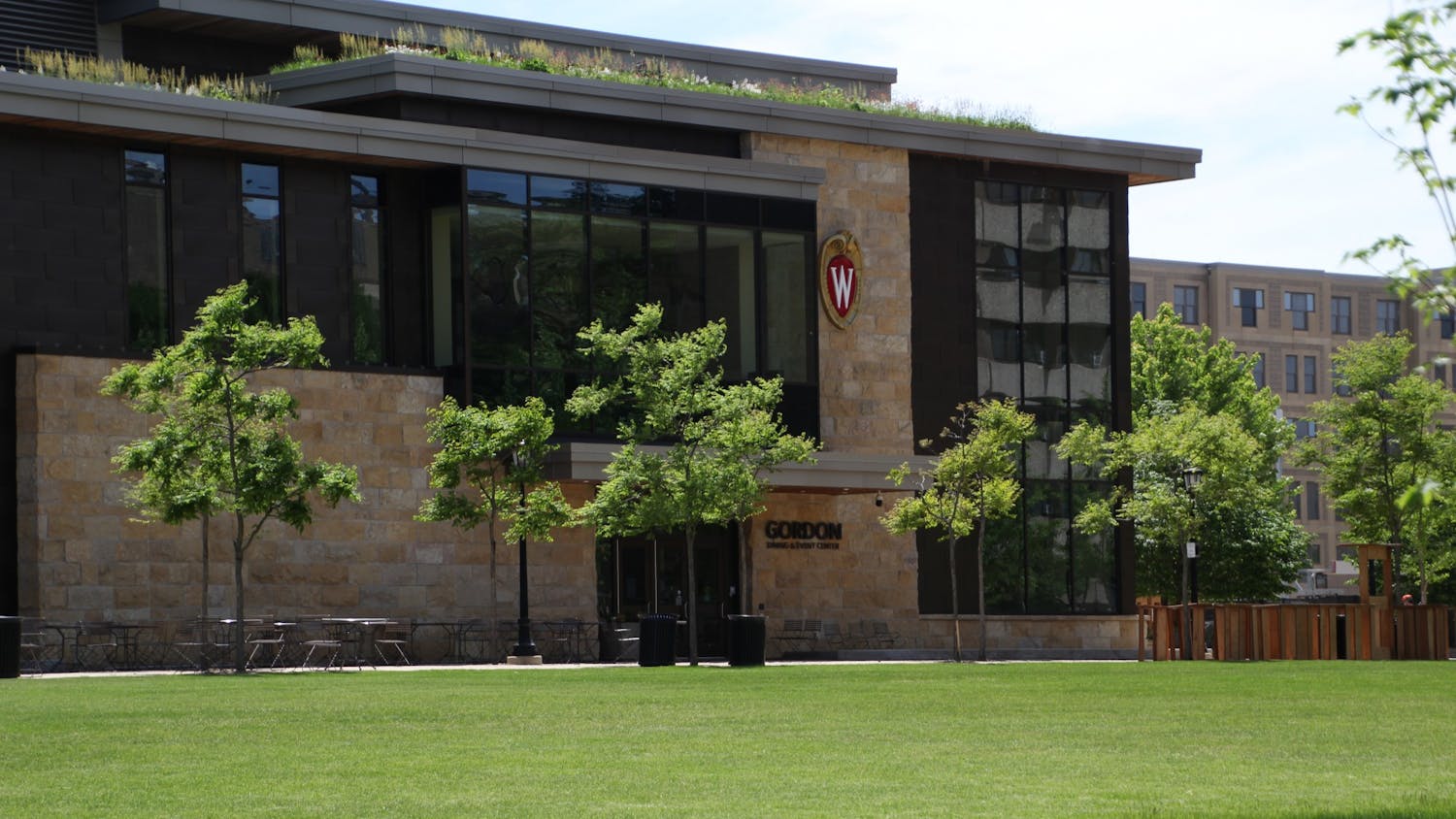Autumn is a special time of year for bears. After a long summer of foraging and hunting, bears are at their fattest. To celebrate all their hard work, Katmai National Park in Alaska hosts Fat Bear Week, when bear-lovers from around the world vote for the fattest grizzly at Katmai.
Adrian Treves, University of Wisconsin-Madison professor of environmental studies and director of the Carnivore Coexistence Lab, founded in 2007, studies many types of carnivores, including bears. In honor of Fat Bear Week, Treves answered The Daily Cardinal’s most pressing ursidae-related questions, from Alaska to Wisconsin.
This interview has been edited for clarity and brevity.
Why is fat important to bears?
In the fall, bears are getting ready to hibernate. Hibernation is a period of torpor, where they're not as active. They're not completely knocked out — they will wake up periodically and come out. But for most of the winter months, from about November through March, the bear is hibernating, and they're in this state where they don't forage for food. And so they need some serious fat reserves to take them through that 4-5 month period. And I guess that's why the national parks are celebrating fat bears.
The bears that we're talking about are up in Alaska in Katmai National Park. In Yellowstone, [their] female bears average about 300 pounds. Male bears average about 460 pounds in October. But the Katmai bears can get up to 1,400 pounds. What makes some bears successful and others not?
Just to clarify, it's not that they're less successful in Yellowstone. It's that the conditions in Alaska are even harsher than down south. Larger bears do better than smaller bears if you're way up north in Alaska, and that's because their hibernation period is longer. In Alaska, they might go into hibernation as early as mid-to-late October and stay there through April, maybe even through May, because of the deep snow cover in the long winter. So if you're hibernating for longer, you absolutely need to be larger, to have more fat reserves. And because it's energetically efficient to be larger, you store heat better.
Is there such a thing as too much fat for bears?
Yes. So here in Wisconsin we have a problem with bears getting too fat… There's been an interesting PhD project dissertation done here at UW-Madison that suggests the [fat] bears, who are eating a lot of junk food, actually live less long. All their longevity is reduced by being overweight at the wrong time of year.
Part of the problem is they're eating junk food because people put it out as bait for bears, in particular bear hunters, and they're using foods as bait that are not healthy for the bears. Instead of blueberries and blackberries and corn, which is pretty good for bears, they're putting out donuts and candy bars and cookies. And so we're seeing obese, overweight bears that are fat too early in the year.
Bears are expanding their population in Wisconsin, with a black bear being sighted in Stoughton not too long ago. Why are bears expanding?
Well, at one time, black bears ranged throughout Wisconsin. It would not have been unusual, in the 1800s, to see a bear in Iowa County, or down in Dane County and Stoughton. What happened is we eradicated most of them from a large chunk of the state, and they've been gradually coming back over decades, or even a century. Good management will allow bears to return to their historic range in minimal conflict with people.
It's basically that they're exploring: they’re finding new space, new foods, new places to hibernate and new places to get fat.
How can people protect themselves if they see a bear close to them or on their property?
There's two different answers depending on what kind of bear. Here in Wisconsin, where there's only black bears, you can make a lot of noise, wave your arms and throw things to scare that bear off. That’s generally a very good human deterrent. Generally, black bears are super shy and elusive and avoid people, so they may stumble upon a person unwittingly.
Grizzly bears are not going to be deterred by you shouting, making a lot of noise or announcing your presence. If they're intent on going where you are, following their path, they're going to do it regardless of how much noise you make. And you could irritate a grizzly bear. Generally, the advice is to back away, announcing your presence so they're not alarmed. You're not trying to scare them. You're just saying things like "bear, bear, bear, I'm here," and you're backing away and looking for a good tree to climb.
Why are bears important to Wisconsin?
Among the positive values of bears are the ecosystem ones, things like dispersing seeds from fruit so that the fruit spreads and grows in new places. Interactions with other organisms like insects and their prey animals are another ecosystem benefit.
Then there's all the human benefits of bears. A lot of people love the fact that they live in a place with bears, and they hope to see signs of the bears scratching… they have an aesthetic appreciation for that, or even a spiritual one. There's Native American totems associated with bears here in Wisconsin. There's the bear [clan]. For them, bears are a totem animal, and super important spiritually.
Why do you care about bears?
I care about all animals. But in particular, large carnivores like bears are difficult for people to coexist with, and when we have trouble coexisting with something, we get fearful, violent. Sometimes we kill those carnivores. We're seeing a lot of large carnivores go extinct.
My lab and I are looking for ways to coexist without killing, to understand and manage that relationship in a way that's healthier for both humans and carnivores.






